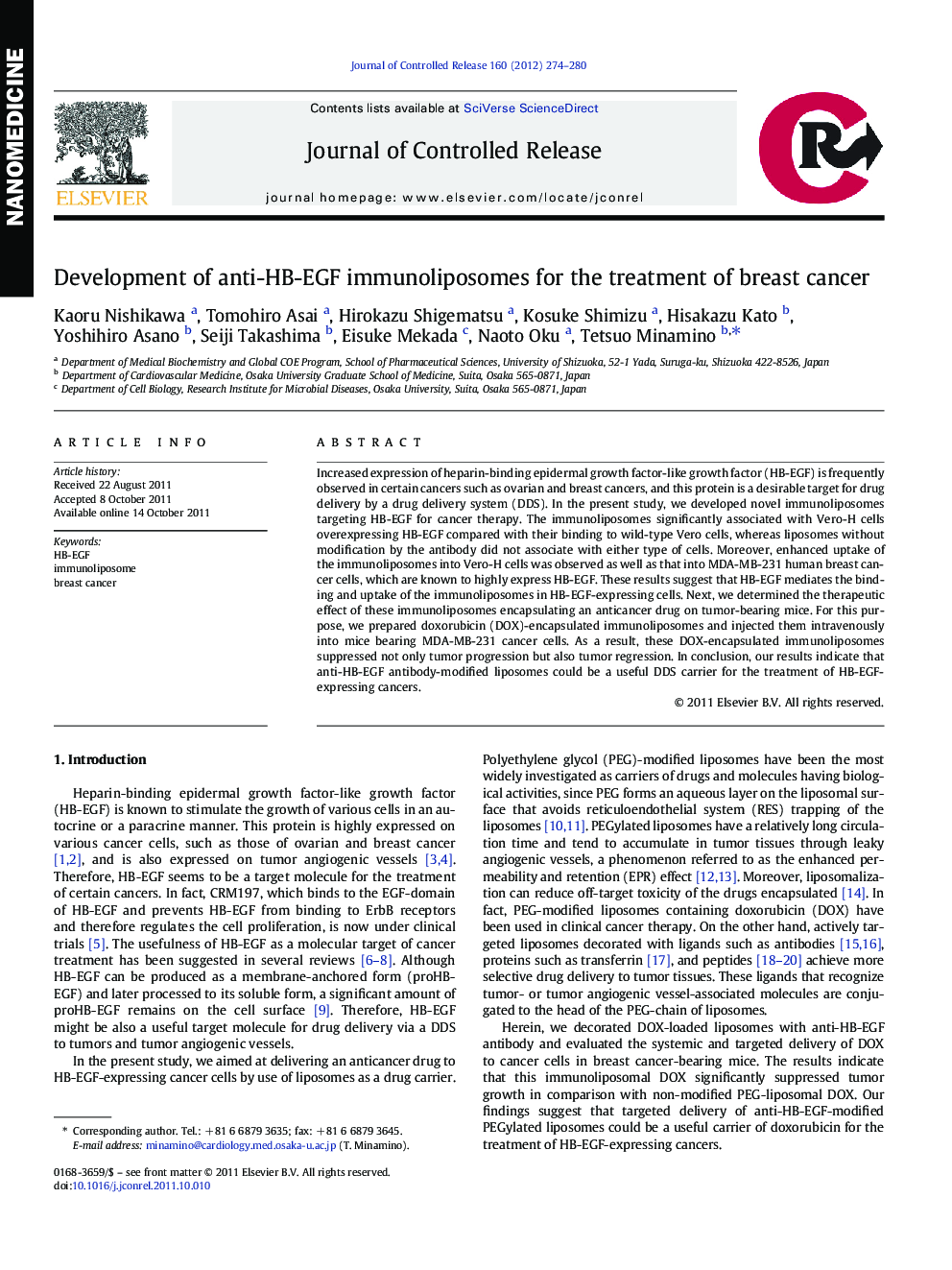| Article ID | Journal | Published Year | Pages | File Type |
|---|---|---|---|---|
| 1424625 | Journal of Controlled Release | 2012 | 7 Pages |
Increased expression of heparin-binding epidermal growth factor-like growth factor (HB-EGF) is frequently observed in certain cancers such as ovarian and breast cancers, and this protein is a desirable target for drug delivery by a drug delivery system (DDS). In the present study, we developed novel immunoliposomes targeting HB-EGF for cancer therapy. The immunoliposomes significantly associated with Vero-H cells overexpressing HB-EGF compared with their binding to wild-type Vero cells, whereas liposomes without modification by the antibody did not associate with either type of cells. Moreover, enhanced uptake of the immunoliposomes into Vero-H cells was observed as well as that into MDA-MB-231 human breast cancer cells, which are known to highly express HB-EGF. These results suggest that HB-EGF mediates the binding and uptake of the immunoliposomes in HB-EGF-expressing cells. Next, we determined the therapeutic effect of these immunoliposomes encapsulating an anticancer drug on tumor-bearing mice. For this purpose, we prepared doxorubicin (DOX)-encapsulated immunoliposomes and injected them intravenously into mice bearing MDA-MB-231 cancer cells. As a result, these DOX-encapsulated immunoliposomes suppressed not only tumor progression but also tumor regression. In conclusion, our results indicate that anti-HB-EGF antibody-modified liposomes could be a useful DDS carrier for the treatment of HB-EGF-expressing cancers.
Graphical abstractFigure optionsDownload full-size imageDownload high-quality image (267 K)Download as PowerPoint slide
